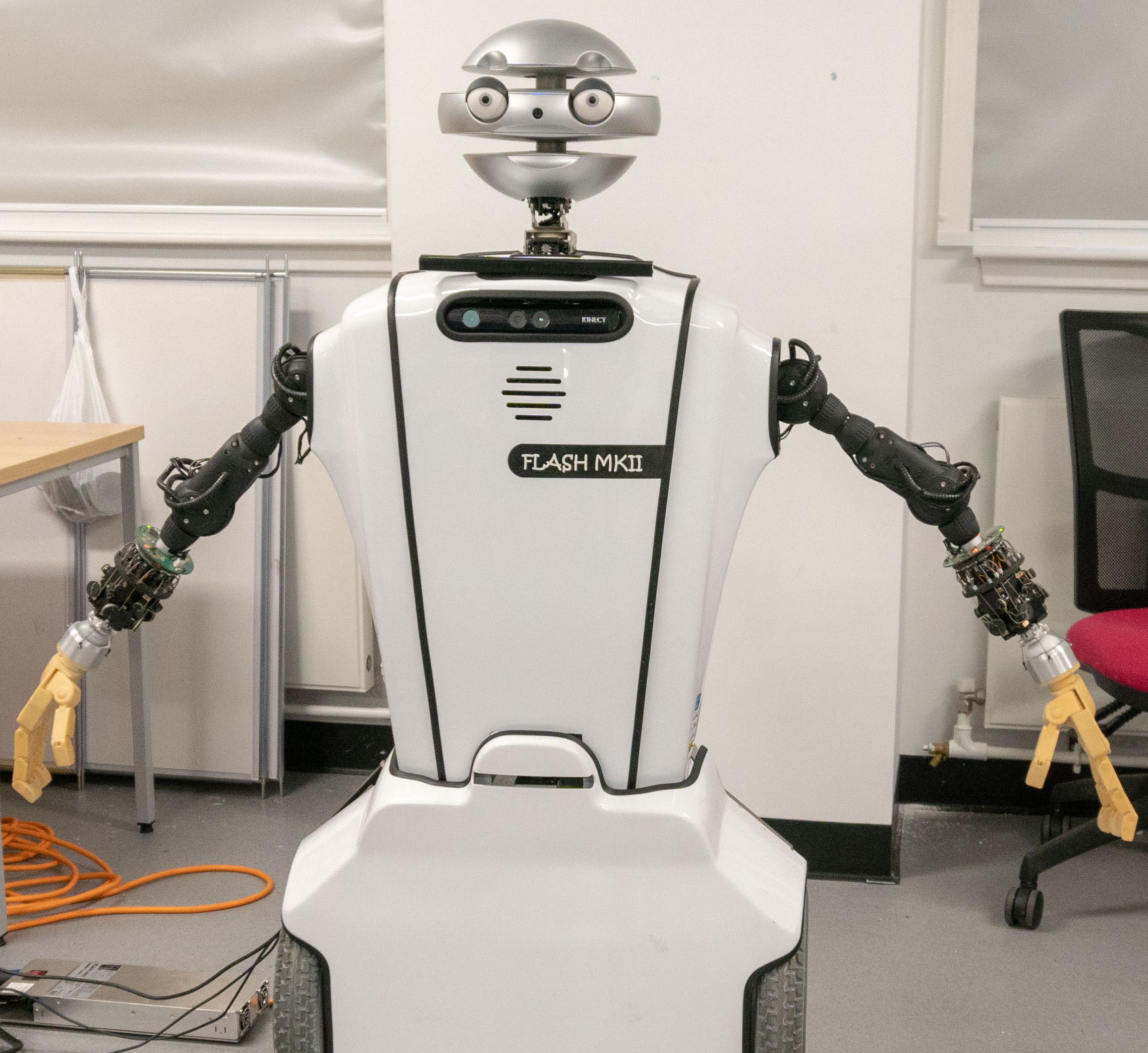|
Travel Grant 2020-21
Expressive behaviour as a social signal for socially-competent human-robot interaction
OVERVIEW
Social agents are graphically or robotically embodied entities designed to act competently
and successfully in everyday human social environments. These could be homes, schools, workplaces, or more
public spaces, like shopping malls and museums. We know that humans impute social agency to such
embodied entities. They therefore assume competence in the social signals humans use themselves to regulate
interaction and to manifest what they feel or think. For this reason, researchers in embodied social agents have
long worked on agent expressive behaviour - facial expressions, vocalisations, gestures, posture, both for
graphical and robotic agents.
Generating expressive behaviour (as distinct from scripting via pre-annotated dialogue items) requires an
architecture that can model affective responses. Such architectures are often based on sound psychological
theory, especially cognitive appraisal theory, but frequently assume that the social agent merely expresses its own internal
state. However, social signals are social because they take into account the social context and the impact such signals
may make on interaction partners.A very initial look at the issue can be found in:
Ritter, C. and Aylett, R., 2015. The Partial Poker-Face: when agents try to hide their true feelings.
In International Conference on Intelligent Virtual Agents (pp. 479-482). Springer, Cham.
A more detailed discussion can be found in:
Aylett, R., Ritter, C., Lim, M.Y., Broz, F., McKenna, P., Keller, I. and Rajendran, G., 2019.
An architecture for emotional facial expressions as social signals.
IEEE Transactions on Affective Computing.
This travel grant supports work on creating mechanisms for embodied social agents that apply theory of mind
(ToM) capabilities to the detection and management by the agent of its own affective state. This would enable
the development of more socially competent agents suitable for a wider range of applications.
It involves visits to: University of Geneva (David Rudrauf); University of Lisbon (Ana Paiva) and University of Southern California (Jon Gratch).
|

|

